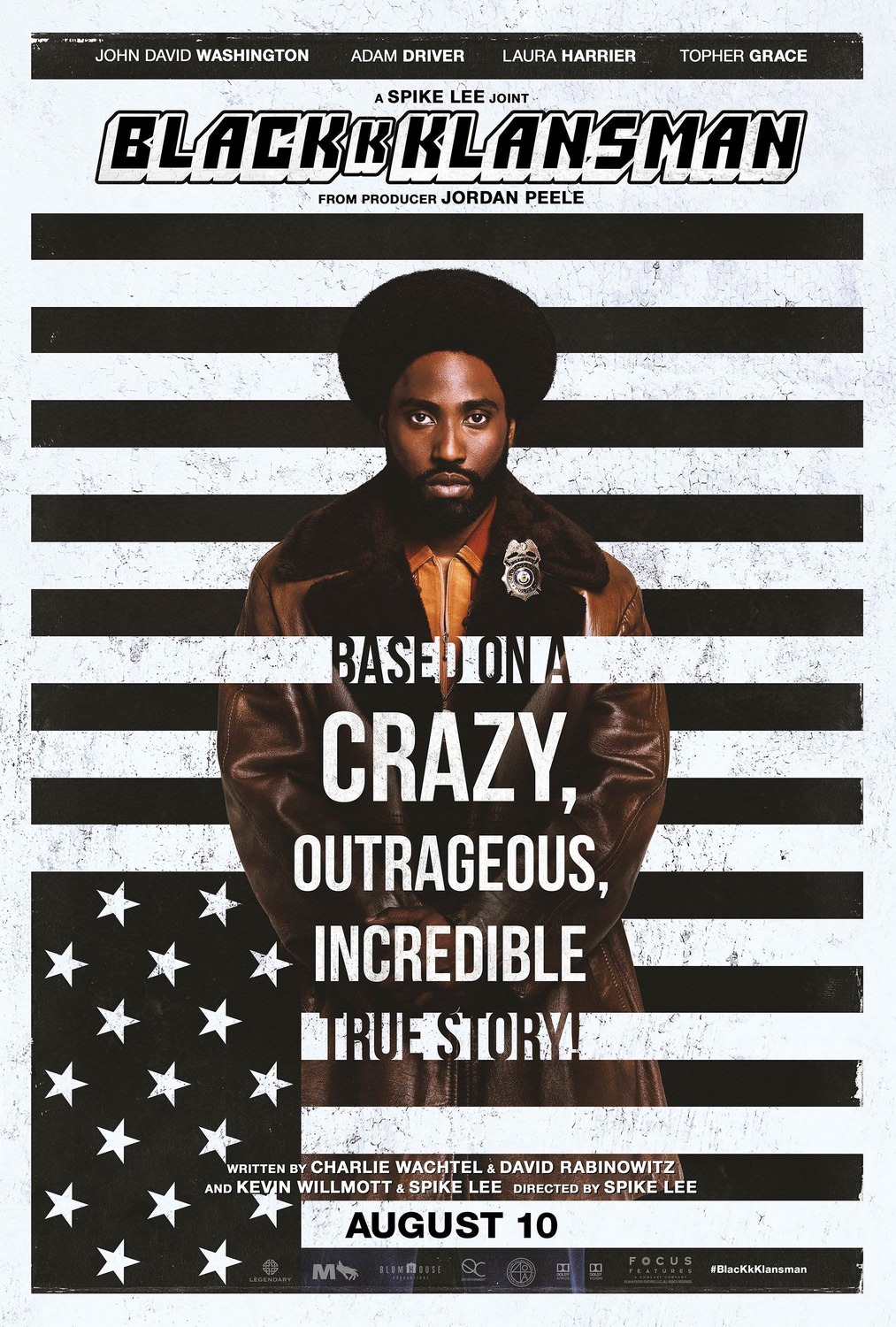Once upon a time, Spike Lee was a relevant filmmaker—a front-line, cinematic voice on race relations in the country. But it’s been almost thirty years since his best film, Do the Right Thing, and a solid decade or so since he’s made any movie that resonated in US theaters. All of that changes with BlacKkKlansman, an emphatic masterpiece that proves Lee is not only still relevant but can actually re-take his place among the best directors when he puts his mind to it.
Based on the true-life story of Ron Stallworth—the first-ever black officer in the Colorado Springs Police Department—the film documents his successful infiltration (and plentiful disruption) of the local chapter of the Ku Klux Klan in the 1970s. Presented as a racially charged drama with enough tinges of straight-up comedy to boost the entertainment level, BlacKkKlansman works across the board.
Leading the way is the phenomenal John David Washington (son of Denzel) as Stallworth, a take-no-crap cop who discovers the best way to fight racism is from the inside. Answering a KKK recruitment ad in the local paper, Stallworth uses his “white voice” to convince the local chapter to take him on as a member. His colleague, Jewish officer Flip Zimmerman (an equally great Adam Driver), stands in for him when face-to-face meetings are required.
When Stallworth’s membership card gets stuck in processing, his call to headquarters leads him to Grand Wizard David Duke (Topher Grace), who takes an instant (and utterly oblivious) liking to Stallworth. The two strike up a “friendship”, which eventually leads to Duke visiting Colorado Springs himself (with incredulous ramifications). At the same time, Stallworth is also integrating himself into the local Civil Rights movement, led by Patrice Dumas (Laura Harrier), the president of the college black student union.
Lee, who co-wrote the script with Charlie Wachtel, David Rabinowitz, and Kevin Willmott, deftly fuses all the storylines together into an absolutely fantastic motion picture that is as timely as it is important. Bookended with vitriolic racism (beginning with hate speech from Alec Baldwin’s fictional Dr. Kennebrew Beauregard and closing with news footage from the 2017 white supremacist rally in Charlottesville), BlacKkKlansman arrives as a movie that—but for the bell-bottoms, flare-collar suit jackets, and funkadelic soundtrack—could easily have been set in the present day. And Lee makes us all realize what a horrifying thought that is.
With the assistance of up-and-coming cinematographer Chayse Irvin, Lee has jumped right back up into the saddle and crafted a visually perfect gut-punch of a film—a sneaky-funny look at subversion and subterfuge that hopefully marks the bona fide return of one of cinema’s greats.
Rating
4.5/5 stars
